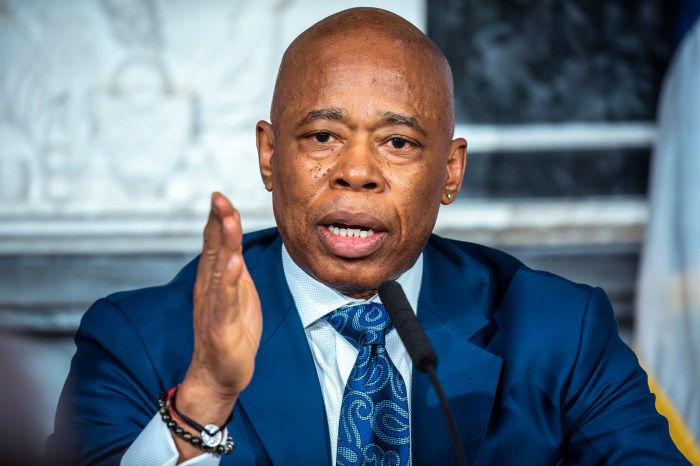Court rejects view that law school violated establishment clause
U.S. District Judge Jeffrey S. White has rejected a claim by the Hastings Christian Fellowship (HCF), an organization of Christian law students, that Hastings Law School in San Francisco violated the federal constitutional ban on establishment of religion, and their due process and equal protection rights when the state-supported school refused to extend official recognition to the organization.
White’s April 12 decision did not deal with other freedom of speech and association claims still pending in the lawsuit.
HCF is part of the Christian Legal Society, a national organization of Christian law students, and requires its members to agree to a “Statement of Faith” requiring adherence to “orthodox Christian beliefs,” including a ban on homosexuality. The law school has a formal non-discrimination policy prohibiting discrimination on the basis of religion and sexual orientation, among other categories, and requires student organizations to adhere to that policy.
In September 2004, HCF informed the law school administration that it would not admit non-Christians or gay members, and the law school refused to let HCF register as a recognized student organization, which is required to use campus facilities, access services and receive funding out of student activity fees. The group then filed its lawsuit, one of many similar cases pending around the country as local chapters of the Christian Legal Society have become increasingly assertive about seeking official campus recognition.
HCF claims that the law school violated its First Amendment rights to freedom of speech, expressive association and free exercise of religion. The lawsuit also alleges violations of the First Amendment establishment clause and the Fourteenth Amendment guarantees of due process and equal protection.
White first addressed the religious establishment claim. The Constitution has been interpreted to mean that the government must be neutral on religion, “and this neutrality would be violated as much by government approval as it would by government disapproval of religion,” he wrote.
White found that Hastings’ non-discrimination policy passed muster, writing that “protecting against and eliminating discrimination at Hastings” is a secular purpose. He found that inhibiting religion was not a primary effect of the policy, even while acknowledging that arguably the policy could be said to favor religious organizations that “tolerate” homosexuality over those that oppose it. White also found no merit to the due process claim.
On the issue of equal protection, White noted that HCF was claiming that the school’s failure to exempt it from the non-discrimination policy was itself discriminatory, but found that “Hastings’ policy would similarly bar an atheist group from excluding those who are religious,” and thus would impact all parties the same. White found that HCF was relying for its equal protection argument entirely on the impact the policy had on that group, but that Supreme Court precedents establish that only intentional discrimination is prohibited by the equal protection clause.
White’s ruling thus disposed of many of the constitutional arguments that HCF has raised, but still leaves to be decided what are the core constitutional concerns of HCF’s freedom to practice its religious beliefs and articulate its views about Christianity and homosexuality. The Boy Scouts’ victory in the U.S. Supreme Court sustaining its right to bar gay members and leaders might prove useful to the plaintiffs on this score.
gaycitynews.com

































